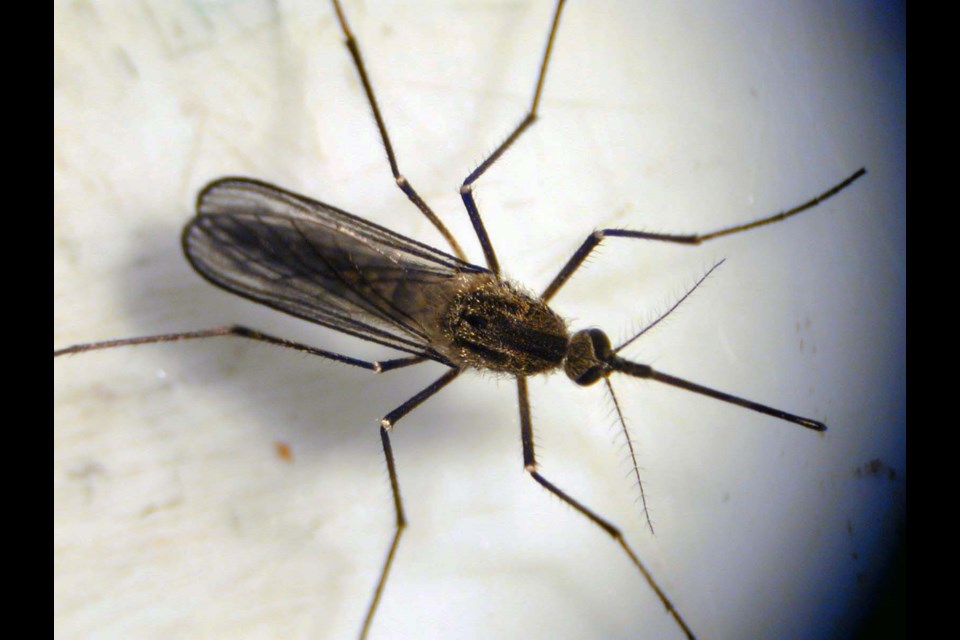Mosquito season is just around the corner.
Under all that snow still lingering in a cooler-than-normal Prince George spring lie millions of mosquito larvae just waiting for water and warmth the grow into the nasty biters we all dread. By mid-May the first of those cold-blooded adults will start to hatch and humans will be on the run trying to avoid them.
UNBC entomologist Lisa Poirier has made it her business to study insects and she regularly gets bombarded by questions from reporters asking if this is going to be a bad year for mosquitoes in the city. Her standard answer is ‘yes.’
“I think the river might flood and that will cause the nuisance populations to be good for mosquitoes, not for us, but I don’t think it will be spectacularly worse than usual,” said Poirier. “Everybody thinks every year is just a horrible mosquito season but it happens every spring. There’s so much standing water around Prince George - it’s always bad.”
The city treats standing pools and ponds with a natural bacteria insecticide, BTI, which kills the mosquitoes before they hatch, but that’s not allowed in any body of water than connects to fish-bearing streams.
Any city park near the Nechako or Fraser rivers is a breeding ground for mosquitoes, especially in late spring when temperatures rise and there’s a better chance of rain. Poirier says best to avoid places like Cottonwood Island, Moore’s Meadow, Wilson Park and Forest For the World during the height of mosquito season.
Poirier recommends covering exposed skin and using a repellant containing DEET. She soaks her clothing in repellant and does not put it directly on skin to avoid potential harmful effects.
Homeowners should get rid of anything that collects water in the yard, especially flowerpots or old tires.



